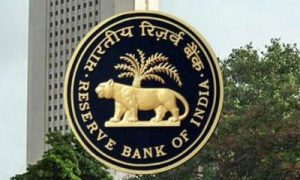On the lines of faceless assessment launched by the government over a month ago, the income-tax department on Friday said that its appeals systems would also become anonymous and move to the faceless regime with immediate effect to eliminate physical interface between tax officials and taxpayers. However, certain cases related to serious frauds, major tax evasion, sensitive and search matters, cases related to international tax and Black Money Act would be exempt.
The process of challenging an income-tax assessment order begins at the lowest level of commissioner (appeals), which is a quasi-judicial forum presided over by a commissioner-rank official of the department. Its decision can subsequently be challenged in the income-tax tribunals, high courts and the Supreme Court by the aggrieved party.
The Central Board of Direct Taxes (CBDT), the policy-making body for the income-tax department, said that 88% of the current pending appeals at the commissioner (appeals) level would now be handled under the faceless system. To execute this, “85% of the present strength of commissioners (appeals) shall be utilised for disposing of the cases under the faceless appeal mechanism,” the Board said.
Currently, there are 4.6 lakh appeals pending with commissioner (appeals).
For income-tax appeals, everything from e-allocation of appeal, e-communication of notice/ questionnaire, e-verification/e-enquiry to e-hearing and finally e-communication of the appellate order, the entire process of appeals will be online, dispensing with the need for any physical interface between the appellant and the department, the Board said.
“There will be no physical interface between the taxpayers or their counsel/s and the income-tax department. The taxpayers can make submissions from the comfort of their home and save their time and resources,” it added.
The Board said that faceless appeal system will include allocation of cases through data analytics and AI under the dynamic jurisdiction with central issuance of notices which would have a Document Identification Number (DIN).
Further, as part of dynamic jurisdiction, the draft appellate order will be prepared in one city and will be reviewed in some other city resulting in an objective, fair and just order, the Board said.
“The faceless appeal will provide not only great convenience to the taxpayers but it will also ensure just and fair appeal orders and minimise any further litigations. The new system will also be instrumental in imparting greater efficiency, transparency and accountability in the functioning of the income-tax department,” it added.
Though the scheme provides for the conduct of personal hearing at the request of the appellant, faceless appeals may pose practical difficulties for taxpayers who find the need to argue and counter argue the issue to validate their tax position and to orally explain their complex business transactions,” Rakesh Nangia, chairman at Nangia Andersen India said. He added that appellate proceedings need court-room play to give a fair chance to the taxpayer to put his case strongly with the help of subject matter experts such as chartered accountants and lawyers.





































